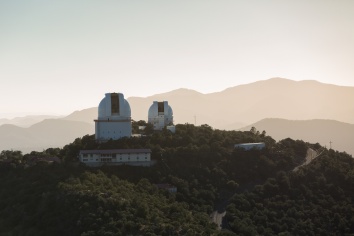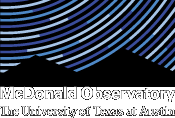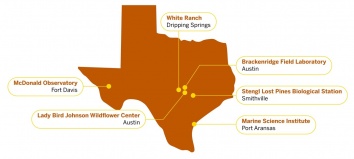BY EMILY HOWARD
FORT DAVIS, Texas – McDonald Observatory is proud to become the newest member of The University of Texas at Austin Texas Field Station Network. This Network represents a collection of sites spread across the state that are used by the University for scientific research, environmental monitoring, and conservation efforts.
The Observatory joins five other current sites in the Network: Stengl Lost Pines Biological Station in Smithville, Brackenridge Field Laboratory in Austin, The Lady Bird Johnson Wildflower Center in Austin, the Marine Science Institute in Port Aransas, and the White Family Outdoor Learning Center in Dripping Springs. An additional site—the Hill Country Field Station—will begin construction soon. Each provides a distinct view into an ecosystem representative of the Lone Star State, from coastal regions to piney woods.
Now, that mix also includes the West Texas desert. Located in the Davis Mountains near Fort Davis, McDonald Observatory sits atop 650 acres of predominately undisturbed land in the Chihuahuan Desert. This is considered the most diverse desert in the Western Hemisphere and one of the most diverse arid regions in the world. The site is also part of the Greater Big Bend International Dark Sky Reserve — 15,000 square miles that feature the darkest night skies in the continental United States.
“It is inspiring to envision the lands of the Observatory contributing to a deeper understanding of our environment,” says Taft Armandroff, director of McDonald Observatory. “Historically, we have been UT’s home for telescopes and instruments to study stars, galaxies, planets, and the universe.”
Though best known as a center for astronomical research, McDonald Observatory has a long tradition of supporting a diverse range of scientific inquiry, albeit unofficially. “At a modest level, UT researchers who study plants, animals, and ecosystems have collected samples and data at the McDonald Observatory site,” says Armandroff. “We are now expanding and formalizing that role by joining UT’s Field Station Network.”
Impacts to McDonald Observatory
Though its new designation as a University field station is likely to bring additional scientists and monitoring equipment to the area, the Observatory does not anticipate a substantial influx of either.
Nor will its new role impact the Observatory’s mission to advance an understanding of the Universe through research and education. “We are working out detailed policies and procedures for field station researchers who will use McDonald Observatory lands without any interference with astronomical observations,” says Armandroff.
Becoming a University field station does, however, invite valuable and ongoing research on the distinct ecosystem within which the Observatory resides and geological features unique to the area. Such research can support conservation efforts while spurring greater investment in the site’s facilities. “As the Observatory becomes important to areas beyond astronomical research,” says Armandroff, “its value to UT Austin and the State of Texas grows.”
UT’s Growing Field Station Network
Four years ago, UT Austin had only two biological field stations: Stengl Lost Pines Biological Station in Smithville and Brackenridge Field Laboratory in Austin. The establishment of additional sites represents a commitment to the University’s strategic plan, which advances the state’s role as a leader in energy and environment-related study.
Since 2021, the University has added four sites officially to the field station network: The Lady Bird Johnson Wildflower Center in Austin, the Marine Science Institute in Port Aransas, the White Family Outdoor Learning Center in Dripping Springs, and now McDonald Observatory in Fort Davis.
The seventh site, the Hill Country Field Station, will be located on the Pedernales River near the Hays and Travis County lines.
- END –
Media Contact
Emily Howard
Communications Manager, McDonald Observatory
emily.howard@austin.utexas.edu
512-475-6763







